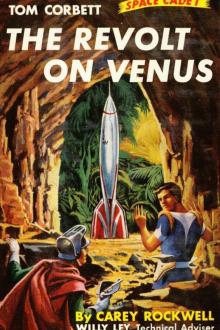Hypatia — or New Foes with an Old Face by Charles Kingsley (e book reader TXT) 📗

- Author: Charles Kingsley
Book online «Hypatia — or New Foes with an Old Face by Charles Kingsley (e book reader TXT) 📗». Author Charles Kingsley
‘Ay-the lament of a man too pure for his age.’
‘Exactly so. He should rather have been content to keep his purity to himself, and have gone to Antioch not merely as a philosophic high-priest, with a beard of questionable cleanliness, to offer sacrifices to a god in whom—forgive me—nobody in Antioch had believed for many a year. If he had made his entrance with ten thousand gladiators, and our white elephant, built a theatre of ivory and glass in Daphne, and proclaimed games in honour of the Sun, or of any other member of the Pantheon—’
‘He would have acted unworthily of a philosopher.’
‘But instead of that one priest draggling up, poor devil, through the wet grass to the deserted altar with his solitary goose under his arm, he would have had every goose in Antioch—forgive my stealing a pun from Aristophanes—running open-mouthed to worship any god known or unknown—and to see the sights.’
‘Well,’ said Hypatia, yielding perforce to Orestes’s cutting arguments. ‘Let us then restore the ancient glories of the Greek drama. Let us give them a trilogy of Aeschylus or Sophocles.’
‘Too calm, my dear madam. The Eumenides might do certainly, or Philoctetes, if we could but put Philoctetes to real pain, and make the spectators sure that he was yelling in good earnest.’
‘Disgusting!’
‘But necessary, like many disgusting things.’
‘Why not try the Prometheus?’
‘A magnificent field for stage effect, certainly. What with those ocean nymphs in their winged chariot, and Ocean on his griffin.... But I should hardly think it safe to reintroduce Zeus and Hermes to the people under the somewhat ugly light in which Aeschylus exhibits them.’
‘I forgot that,’ said Hypatia. ‘The Orestean trilogy will be best, after all.’
‘Best? perfect—divine! Ah, that it were to be my fate to go down to posterity as the happy man who once more revived Aeschylus’s masterpieces on a Grecian stage! But—Is there not, begging the pardon of the great tragedian, too much reserve in the Agamemnon for our modern taste? If we could have the bath scene represented on the stage, and an Agamemnon who could be really killed—though I would not insist on that, because a good actor might make it a reason for refusing the part—but still the murder ought to take place in public.’
‘Shocking! an outrage on all the laws of the drama. Does not even the Roman Horace lay down as a rule the—Nec pueros coram populo Medea trucidet?’
‘Fairest and wisest, I am as willing a pupil of the dear old Epicurean as any man living—even to the furnishing of my chamber; of which fact the Empress of Africa may some day assure herself. But we are not now discussing the art of poetry, but the art of reigning; and, after all, while Horace was sitting in his easy-chair, giving his countrymen good advice, a private man, who knew somewhat better than he what the mass admired, was exhibiting forty thousand gladiators at his mother’s funeral.’
‘But the canon has its foundation in the eternal laws of beauty. It has been accepted and observed.’
‘Not by the people for whom it was written. The learned Hypatia has surely not forgotten, that within sixty years after the Ars Poetica was written, Annaeus Seneca, or whosoever wrote that very bad tragedy called the Medea, found it so necessary that she should, in despite of Horace, kill her children before the people, that he actually made her do it!’
Hypatia was still silent—foiled at every point, while Orestes ran on with provoking glibness.
‘And consider, too, even if we dare alter Aeschylus a little, we could find no one to act him.’
‘Ah, true! fallen, fallen days!’
‘And really, after all, omitting the questionable compliment to me, as candidate for a certain dignity, of having my namesake kill his mother, and then be hunted over the stage by furies—’
‘But Apollo vindicates and purifies him at last. What a noble occasion that last scene would give for winning them hack to their old reverence for the god!’
‘True, but at present the majority of spectators will believe more strongly in the horrors of matricide and furies than in Apollo’s power to dispense therewith. So that I fear must be one of your labours of the future.’
‘And it shall be,’ said Hypatia. But she did not speak cheerfully.
‘Do you not think, moreover,’ went on the tempter, ‘that those old tragedies might give somewhat too gloomy a notion of those deities whom we wish to reintroduce—I beg pardon, to rehonour? The history of the house of Atreus is hardly more cheerful, in spite of its beauty, than one of Cyril’s sermons on the day of judgment, and the Tartarus prepared for hapless rich people?’
‘Well,’ said Hypatia, more and more listlessly; ‘it might be more prudent to show them first the fairer and more graceful side of the old Myths. Certainly the great age of Athenian tragedy had its playful reverse in the old comedy.’
‘And in certain Dionysiac sports and processions which shall be nameless, in order to awaken a proper devotion for the gods in those who might not be able to appreciate Aeschylus and Sophocles.’
‘You would not reintroduce them?’
‘Pallas forbid! but give as fair a substitute for them as we can.’
‘And are we to degrade ourselves because the masses are degraded?’
‘Not in the least. For my own part, this whole business, like the catering for the weekly pantomimes, is as great a bore to me as it could have been to Julian himself. But, my dearest madam—“Panem and Circenses”—they must be put into good humour; and there is but one way—by “the lust of the flesh, and the lust of the eye, and the pride of life,” as a certain Galilaean correctly defines the time-honoured Roman method.’
‘Put them into good humour? I wish to lustrate them afresh for the service of the gods. If we must have comic representations, we can only have them conjoined to tragedy, which, as Aristotle defines it, will purify their affections by pity and terror.’
Orestes smiled.
‘I certainly can have no objection to so good a purpose. But do you not think that the battle between the gladiators and the Libyans will have done that sufficiently beforehand? I can conceive nothing more fit for that end, unless it be Nero’s method of sending his guards among the spectators themselves, and throwing them down to the wild beasts in the arena. How thoroughly purified by pity and terror must every worthy shopkeeper have been, when he sat uncertain whether he might not follow his fat wife into the claws of the nearest lion!’
‘You are pleased to be witty, sir,’ said Hypatia, hardly able to conceal her disgust.
‘My dearest bride elect, I only meant the most harmless





Comments (0)